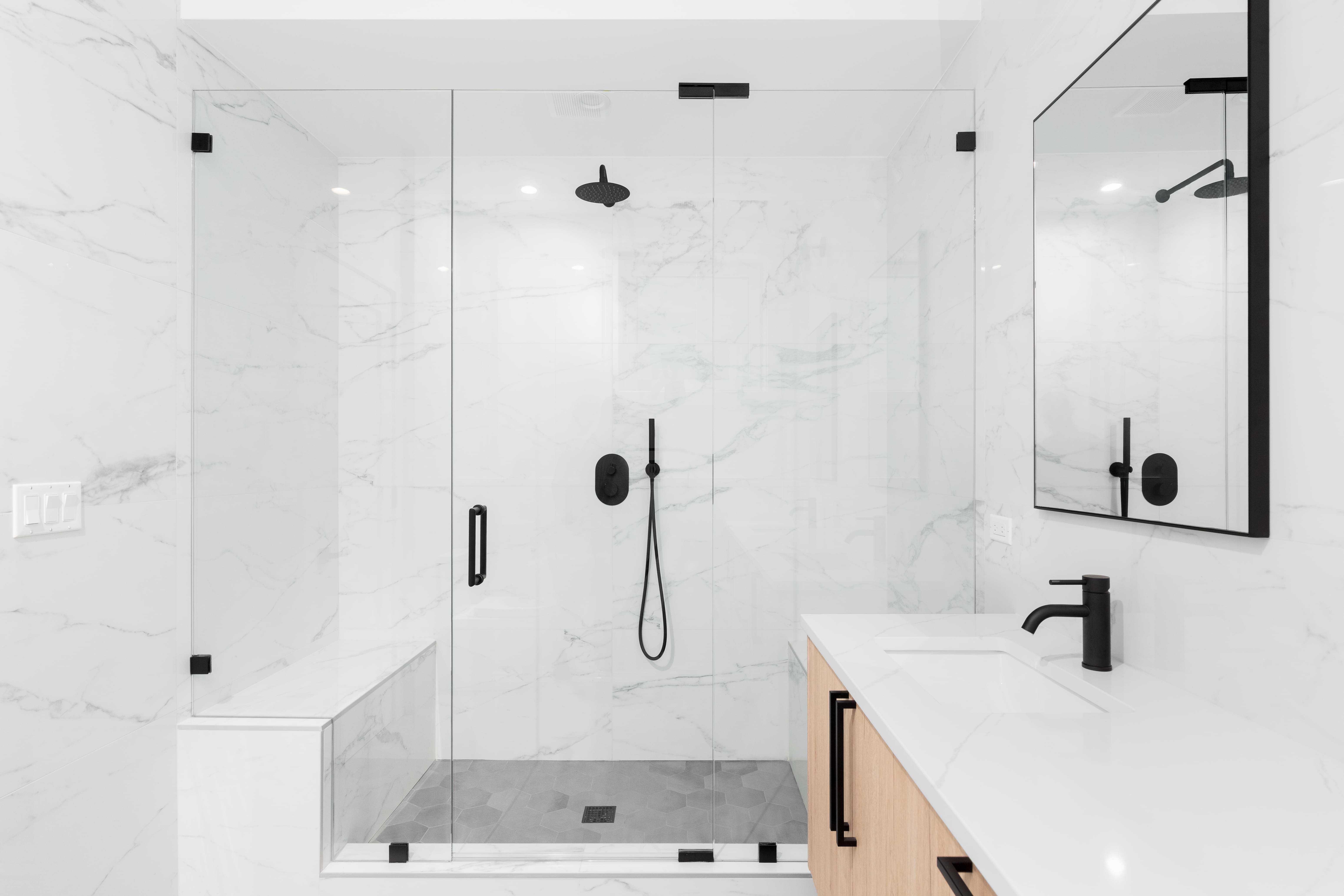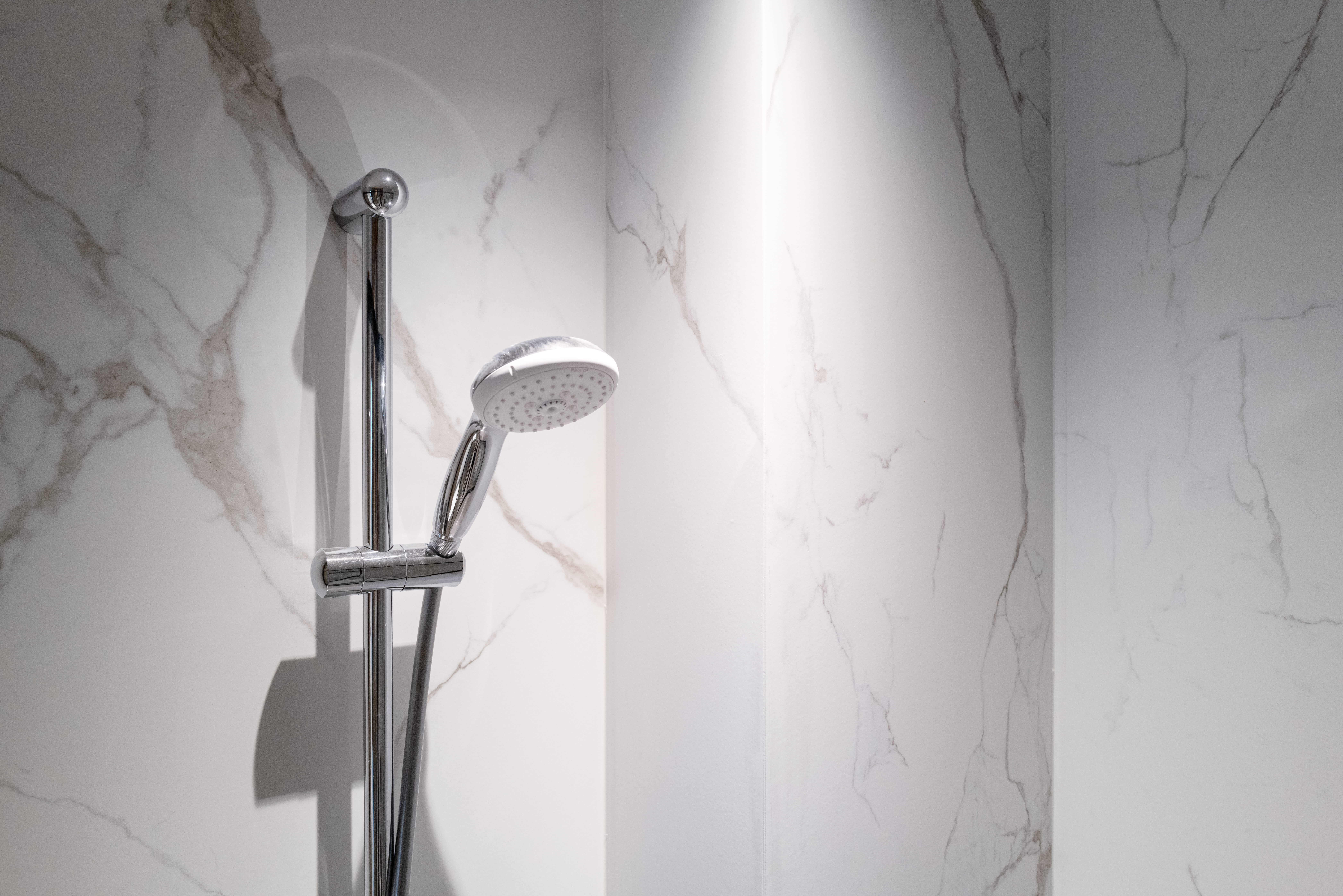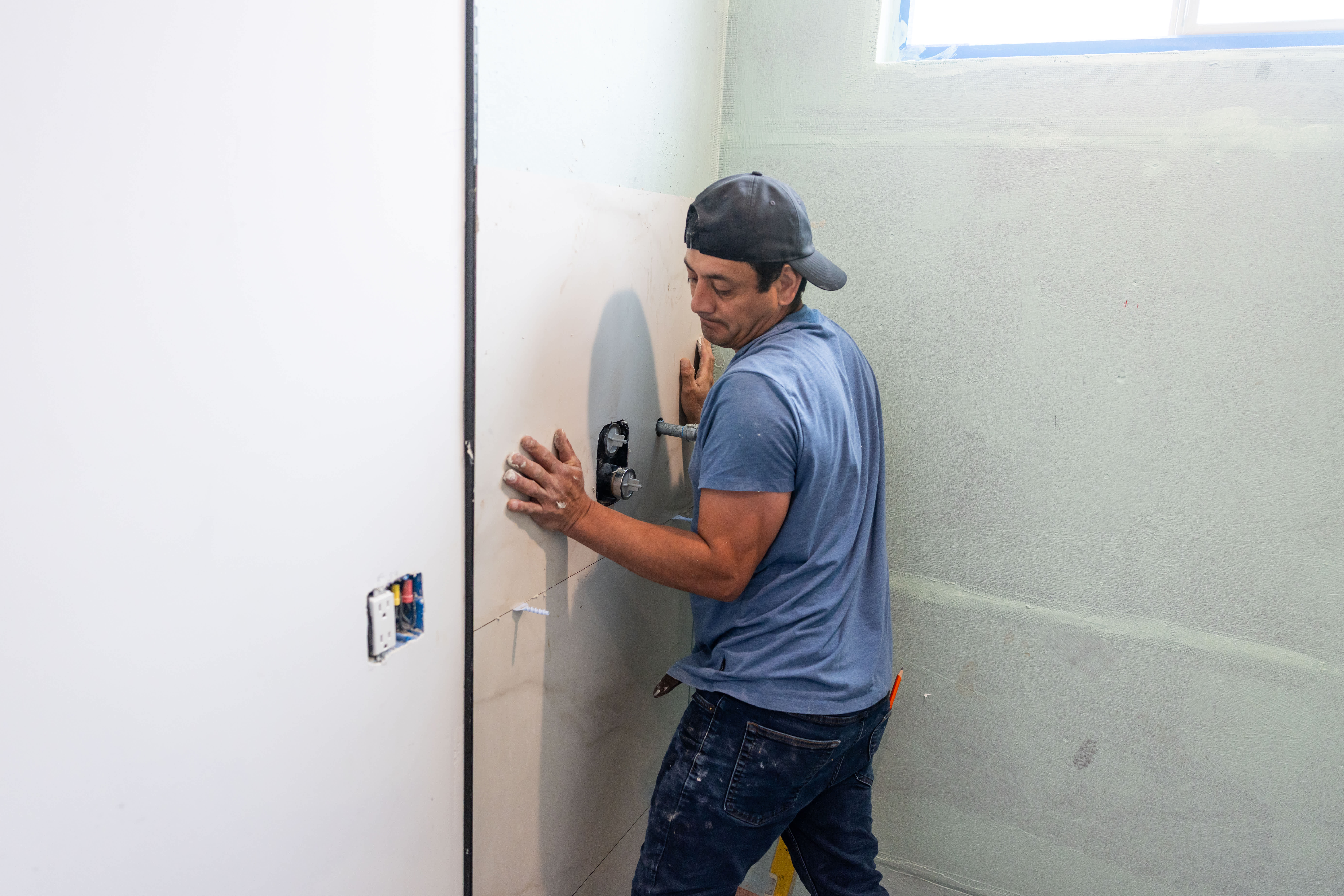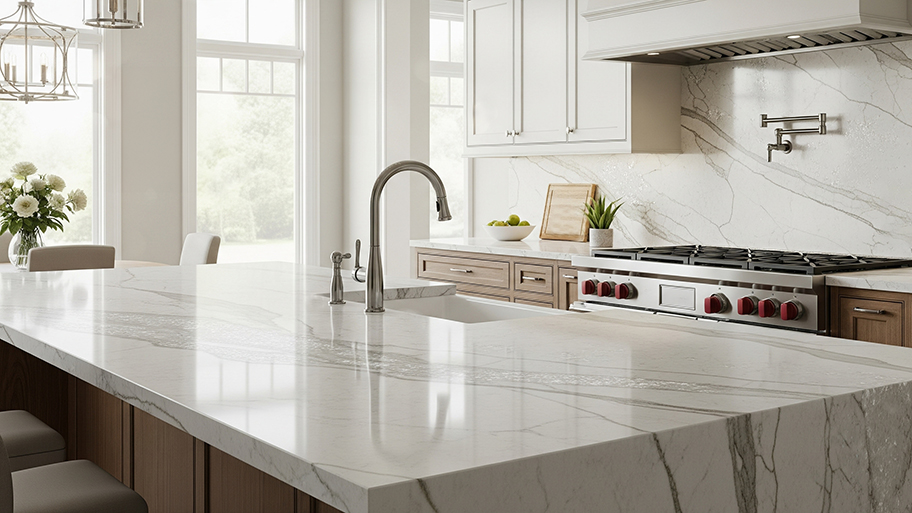
Marble backsplashes are beautiful and costly additions to your kitchen. Our guide lays out marble options and the labor required to install it.
If you’re courting quartz, here’s what you need to know


Quartz is an engineered material made of 93% quartz and 7% resins and pigments.
Quartz shower walls are waterproof, easy to maintain, and highly customizable.
Because they’re heavy, quartz shower walls may require additional structural support, which adds to the cost.
These walls are sensitive to chemical cleaners, so you have to stick with soap and water.
Designing or remodeling a bathroom means making choices about materials, from natural stone for countertops to floor tiles. If you’re considering installing quartz shower walls, carefully weigh all the benefits there are to love, while also shining a light on some of their less desirable qualities. Before making a final decision, take a deep dive into the pros and cons of quartz shower walls.
A quartz shower wall, or surround, is an engineered product containing a mix of quartz (93%) and pigments and resins (7%) that bind the particles of quartz together. Quartz is an incredibly durable and long-lasting material, and it's also nonporous, making it uniquely suited to perform well in a bathroom. A tile contractor can go through your options and help you decide if seamless quartz shower walls are right for you.
| Pros of Quartz Shower Walls | Cons of Quartz Shower Walls |
|---|---|
| Waterproof | May require additional structural support |
| Easy to maintain | Increased cost for vertical installation |
| Customizable appearance | Sensitive to chemical cleaners |

Quartz is a waterproof material that is easy to maintain and highly versatile. These pros make it a good contender for your shower walls.
While being waterproof may seem like a nonnegotiable for a moisture-rich environment like a bathroom and a shower, some traditional bathroom materials aren’t waterproof. Natural stone, like marble, travertine, or porcelain, will need to be periodically sealed. Quartz, on the other hand, is nonporous, making it ideal for use as a shower wall.
Being waterproof is one reason that quartz shower walls are low-maintenance. Unlike other tiles, they don’t need to be sealed, and they’re also stain-resistant. All you need to do is clean your shower periodically with gentle soap and water.
Because quartz is an engineered product, it can be produced in a way that mimics marble, granite, or even leather, which would make for a very interesting shower wall. There is a wide variety of available colors and veining patterns, so you’re likely to find something to complement your bathroom design.

Quartz makes a good shower wall material for its durability and versatility, but it does have some disadvantages to keep in mind.
Quartz is a hefty material and is heavier than other options like acrylic or tile, which complicates a shower wall installation. Quartz slabs for a shower wall weigh about 10 to 25 pounds per square foot, depending on the thickness. Because of its weight, the installation may require additional structural support, which extends the timeline and adds to the total cost.
The weight of quartz slabs can also increase labor costs for shower tile installation, especially for vertical applications. It will take more labor to transport, unload, and move the panels into place. As previously mentioned, your pro may also need to add structural support to the shower.
Luckily, quartz is easy to clean, so you shouldn’t need to reach for strong chemical cleaners. But if you do, it can damage the surface of the quartz shower walls. Stick with a mild soap and warm water during your cleaning routine.
If you don’t think quartz is the best shower wall material for your bathroom, there are various alternatives to choose from. Popular shower tile options or prefabricated walls include:
Marble
Acrylic
Fiberglass
Ceramic tile
Porcelain tile
Quartz shower walls could be the ideal choice for your bathroom remodel if you’re seeking a beautiful, low-maintenance, and durable material. On the other hand, if you’re concerned about your shower’s ability to support the quartz slabs or are sticking to a smaller budget, you can explore some of the alternatives to quartz shower walls. Discussing your shower wall options with a local tile contractor can help you weigh the benefits while also considering the disadvantages before you settle on the best material.
From average costs to expert advice, get all the answers you need to get your job done.

Marble backsplashes are beautiful and costly additions to your kitchen. Our guide lays out marble options and the labor required to install it.

Are you getting close to deciding on Caesarstone® countertops for your home? Discover all the details behind Caesarstone® countertop costs in this guide.

How much your quartzite countertops will cost depends on a number of factors—most prominently, the type of quartzite and the size of your counters.

Quartz countertops can complement just about any kitchen design, but how long do quartz countertops last? Here’s everything you need to know.

There are many types of granite countertops and colors to choose from, including blues, pinks, and greens. The right one can make a stunning statement.

White quartz is durable, attractive, and low maintenance. Learn about the pros and cons of white quartz countertops to decide if they’ll work in your kitchen.